
Introduction: The Urgent Need for a Safe Environment
The world is rapidly transforming. In 2025, urbanization is at its peak, with cities expanding and more infrastructure being built every day. Malls, factories, highways, and skyscrapers symbolize progress, but this development comes at a terrible cost—the destruction of nature.
Deforestation is happening at an alarming rate, leading to increased temperatures, rising pollution levels, and severe health issues. The more trees we cut down, the more we suffer. It’s simple: without nature, we cannot survive.
A future without trees means scorching heat, increased respiratory diseases, and a lack of pure oxygen. The consequences of environmental destruction are real, and if we don’t take action today, future generations will face devastating conditions.
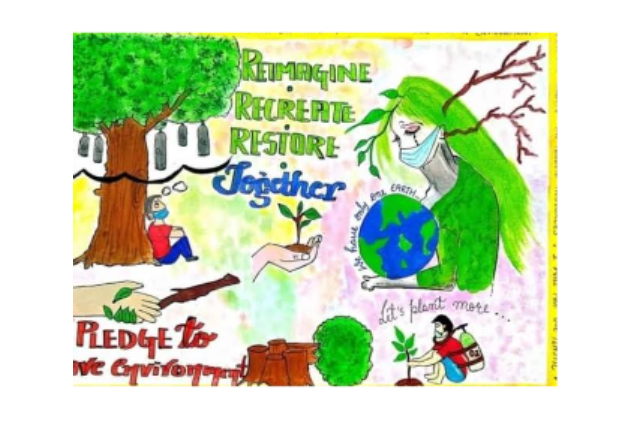
This blog will highlight:
- The dangers of deforestation
- The health impact of a polluted environment
- How planting 500 crore trees in India can save us
- Why spirituality is linked to environmental protection
- Simple steps you can take to create a safe environment
The Impact of Deforestation on the Environment
The Link Between Deforestation and Climate Change
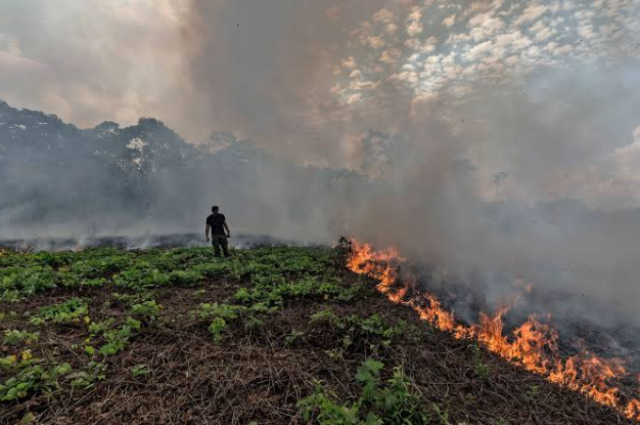
Deforestation is one of the biggest contributors to global warming. Trees absorb carbon dioxide (CO₂), the primary greenhouse gas responsible for climate change. When trees are cut, CO₂ accumulates in the atmosphere, trapping heat and raising temperatures.
In April and May, temperatures in many parts of India exceed 45°C, making life unbearable.
Without trees:
- Heatwaves become more frequent and intense
- Ice caps melt faster, leading to rising sea levels
- Extreme weather events like storms, floods, and droughts become more common
Increased Air Pollution and Poor Air Quality
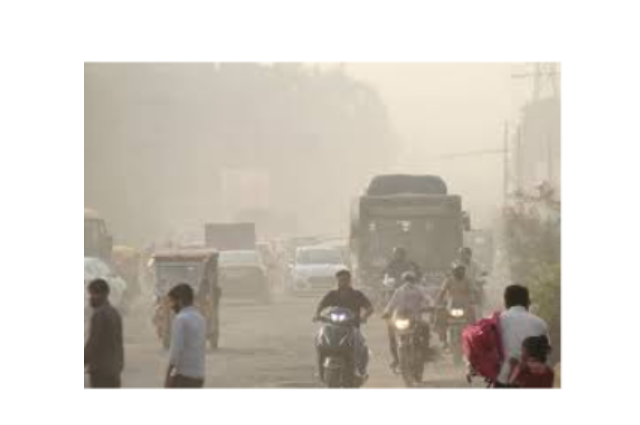
Trees act as natural air purifiers by absorbing harmful pollutants such as:
- Carbon monoxide
- Sulfur dioxide
- Nitrogen oxides
Without trees, these pollutants increase in the air, leading to:
- Higher cases of asthma and lung diseases
- More smog in cities, reducing visibility
- Increased carbon levels, worsening climate change
Disruptions in the Water Cycle and Soil Erosion
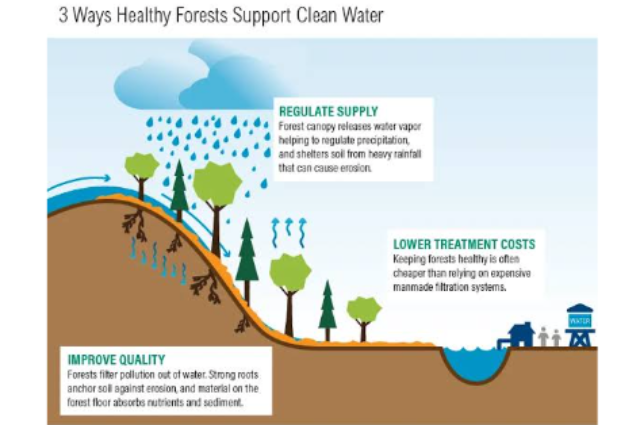
Trees play a crucial role in the water cycle by absorbing and storing rainwater. Their roots prevent soil erosion and help maintain groundwater levels. However, when forests are cleared:
- Droughts increase because rainwater is not absorbed into the soil
- Flooding becomes worse since there are no roots to hold back excess rain
- Soil becomes infertile, reducing agricultural productivity
This has a direct impact on food supply, water availability, and the economy.
The Human Cost of Environmental Destruction
Rising Temperatures and Heat-Related Illnesses
With fewer trees, heat gets trapped in cities, creating urban heat islands. This leads to:
- Higher rates of heat strokes and dehydration
- Increased heart diseases due to extreme temperatures
- Weakened immune systems, making people more vulnerable to infections
Elderly people, children, and those with existing health conditions are at the highest risk.
The Impact on Mental Health

Living in a polluted, deforested environment affects mental well-being. Studies show that being in nature reduces stress, anxiety, and depression.
However, with fewer green spaces:
- People experience more fatigue and mood swings
- Stress and anxiety levels rise
- Urban life becomes overwhelming, reducing happiness
Oxygen Shortages and Respiratory Diseases
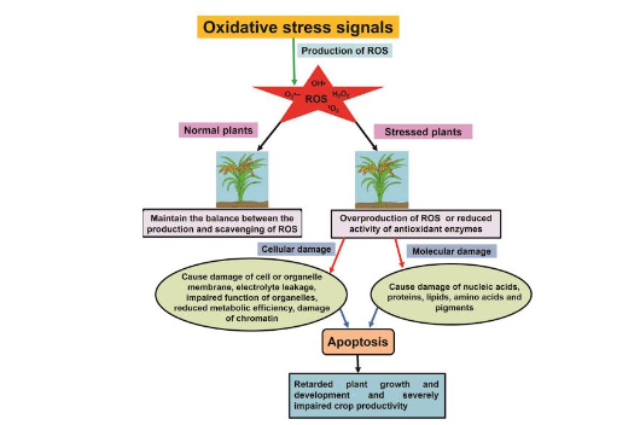
Trees provide the oxygen we breathe, yet we continue to destroy them.
The effects of fewer trees include:
- Higher pollution levels, making breathing difficult
- More lung diseases like bronchitis and asthma
- Increased reliance on artificial oxygen supplies in hospitals
If deforestation continues, clean air will become a luxury rather than a basic right.
How We Can Create a Safe Environment
The Need to Plant 500 Crore Trees in India
To reverse the damage, it is necessary to plant at least 500 crore trees across India. This will:
- Reduce pollution by absorbing harmful gases
- Lower city temperatures by providing shade
- Improve oxygen levels, making air healthier
- Enhance biodiversity, restoring ecosystems
Every individual should commit to planting and protecting trees. Even one tree can make a huge difference.
Embracing Sustainable Living Practices
To ensure a safe environment, we must adopt sustainable habits:
- Reduce plastic use to prevent pollution
- Recycle and reuse materials to conserve resources
- Use solar or wind energy instead of fossil fuels
- Grow rooftop gardens to improve air quality
- Small changes can create a massive impact if everyone participates.
Government Policies and Global Efforts
Many governments worldwide are taking action to protect the environment:
- India’s Green India Mission aims to increase forest cover
- China’s tree-planting projects have reduced desertification
- Europe’s climate goals focus on achieving carbon neutrality by 2050
However, more aggressive action is needed. Governments must enforce stricter environmental laws and promote eco-friendly industries.
The Spiritual Connection to Environmental Protection
Nature as a Sacred Entity
Many spiritual traditions recognize that nature and humans are deeply connected. In Hinduism, Buddhism, and Indigenous cultures, trees, rivers, and mountains are considered sacred. Protecting nature is an act of gratitude and respect.
Practicing Mindful Living for a Better Future
Mindfulness teaches us to live in harmony with nature by:
- Reducing waste
- Planting trees
- Conserving energy
This simple shift in mindset creates a positive ripple effect in society.
Spreading Positivity Through Environmental Action
Taking care of the environment brings inner peace and fulfillment. When we contribute to conservation, we experience a sense of purpose and joy.
By respecting and nurturing the planet, we create a better world for future generations.
Call to Action – Protect Our Environment Today!
A safe environment is not just a necessity—it is our duty. Every small step matters.
Here’s what you can do:
- Plant a tree in your home, school, or office
- Reduce waste by recycling and reusing materials
- Support green policies and encourage your community to take action
- Educate others about the importance of environmental conservation
The future of our planet depends on us. Let’s work together to create a healthier, greener, and safer environment for future generations.
Final Thoughts – The Time to Act is Now
The world is facing an environmental crisis, and the solution lies in our hands. If we continue to cut trees, pollute the air, and exploit natural resources, we will face disastrous consequences.
However, if we take action today, we can create a sustainable future. By planting more trees, adopting eco-friendly habits, and spreading awareness, we can ensure that our children inherit a world that is healthy, green, and full of life.
Will you take action today? Start by planting a tree!
